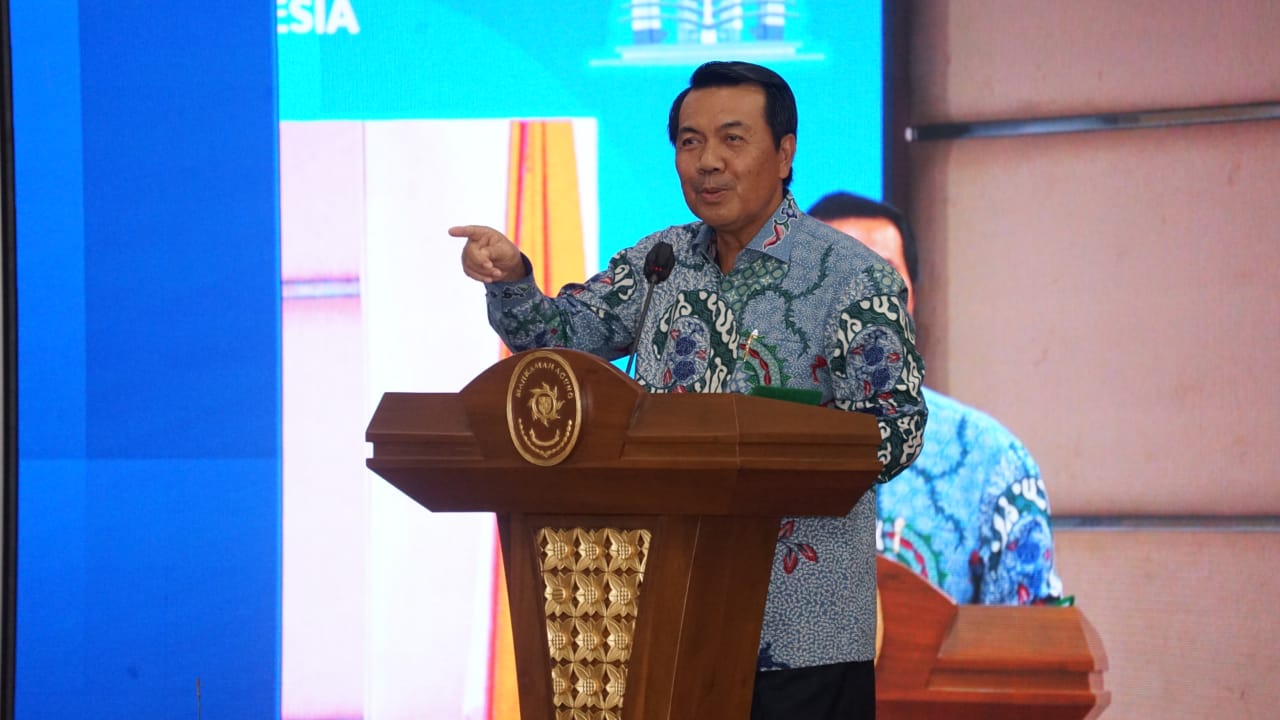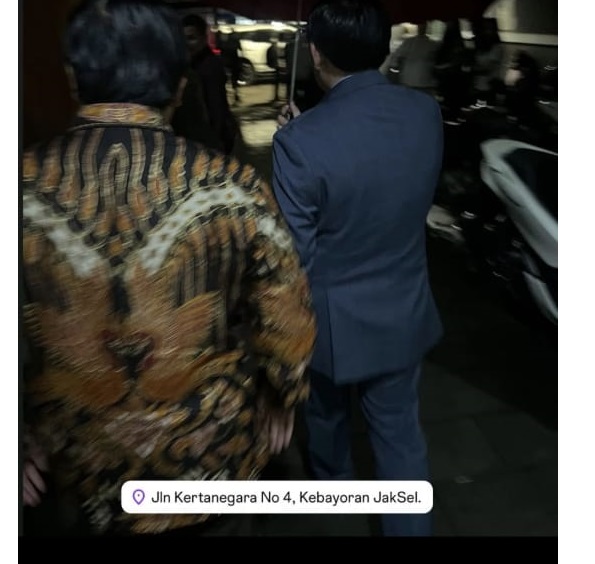Quietly, Chief Justice M Syarifuddin Invited by Prabowo: What Ministerial Role Awaits?
In a meeting that flew under the media radar, Chief Justice of the Supreme Court (MA) M Syarifuddin was unexpectedly summoned by President-elect Prabowo Subianto to his residence on Jalan Kertanegara, South Jakarta, on Monday, October 14.
The gathering took place amid the ongoing cabinet formation process for Prabowo-Gibran 2024-2029, catching many by surprise, especially since Syarifuddin’s term as Chief Justice is set to end on October 17, 2024.
Syarifuddin arrived at Prabowo’s home at 6:30 PM, accompanied by Sultan Najamuddin, the Chairman of the Regional Representative Council (DPD). He managed to slip past the media waiting outside, adding an air of intrigue to the meeting.
The presence of Syarifuddin alongside notable figures such as Sultan Najamuddin and Imam Besar Istiqlal Mosque Nazaruddin Umar sparked speculation regarding his potential role in the upcoming cabinet.
Despite inquiries, details about the specific ministry Syarifuddin might assume remain unclear.
Internal sources suggest that Syarifuddin’s invitation could be linked to a strategic position within the legal or governmental sectors that would benefit from his judicial expertise.
Given his extensive experience as Chief Justice, many speculate he could be tasked with overseeing legal reforms or matters related to the judiciary.
Responding to the assembly of prospective ministers, Prabowo Subianto indicated that all invited figures expressed their willingness to join his cabinet. “Alhamdulillah, everyone has confirmed their readiness,” Prabowo stated.
In addition to Syarifuddin, several other prominent individuals were also present during this initial round of invitations, including Agus Harimurti Yudhoyono (AHY), Yusril Ihza Mahendra, Tito Karnavian, and Sri Mulyani. However, Syarifuddin’s unexpected attendance garnered particular attention amidst the cabinet formation dynamics.
The election for the new Chief Justice is scheduled for October 16, 2024, just one day before Syarifuddin’s official term concludes. This timing raises the question: will Syarifuddin transition from the judiciary to an executive role?
A Notable Cabinet Call: Fifty Individuals Invited by Prabowo
Notably, the list of those summoned by Prabowo has expanded beyond the initially expected figures, totaling 50 individuals. Here are the names of the prospective ministers invited on the first day:
- Prasetyo Hadi
- Natalius Pigai
- Widiyanti Putri Wardhana
- Yandri Susanto
- Fadli Zon
- Nusron Wahid
- Saifullah Yusuf (Gus Ipul)
- Maruarar Sirait
- Teuku Riefky Harsya
- Agus Harimurti Yudhoyono (AHY)
- Satryo Soemantri Brodjonegoro
- Arifatul Choiri Fauzi
- Yassierli
- Zulkifli Hasan (Zulhas)
- Tito Karnavian
- Bahlil Lahadalia
- Yusril Ihza Mahendra (Coordinating Minister for Law and Human Rights)
- Abdul Mu’ti (Minister of Education and Culture)
- Iftitah Sulaiman
- Sugiono
- Muhaimin Iskandar
- Wihaji
- Abdul Kadir Karding
- Agus Andrianto
- Raja Juli Antoni
- Agus Gumiwang Kartasasmita
- Pratikno
- Maman Abdurrahman (Minister of Cooperatives and SMEs)
- Ribka Haluk
- Dudy Purwagandhi
- Sakti Wahyu Trenggono
- Budi Santoso
- Rachmat Pambudy
- Raden Dodi Priyono
- Hanif Faisol Nurofiq
- Nasaruddin Umar
- Amran Sulaiman
- Sultan B Najamudin
- Erick Thohir
- Dito Ariotedjo
- Budi Gunadi Sadikin
- Airlangga Hartarto
- Sri Mulyani (Minister of Finance)
- Veronica Tan
- Supratman Andi Agtas
- Rosan Roeslani
- M Herindra
- Donny Ermawan
- Meutya Hafid
- M Syarifuddin
As the cabinet formation progresses, the anticipation surrounding M Syarifuddin’s potential new role remains a compelling topic for discussion.
The transition from the judiciary to the executive branch would indeed mark a significant shift in his career, leaving many curious about the impact of such a change on Indonesia’s legal landscape.









